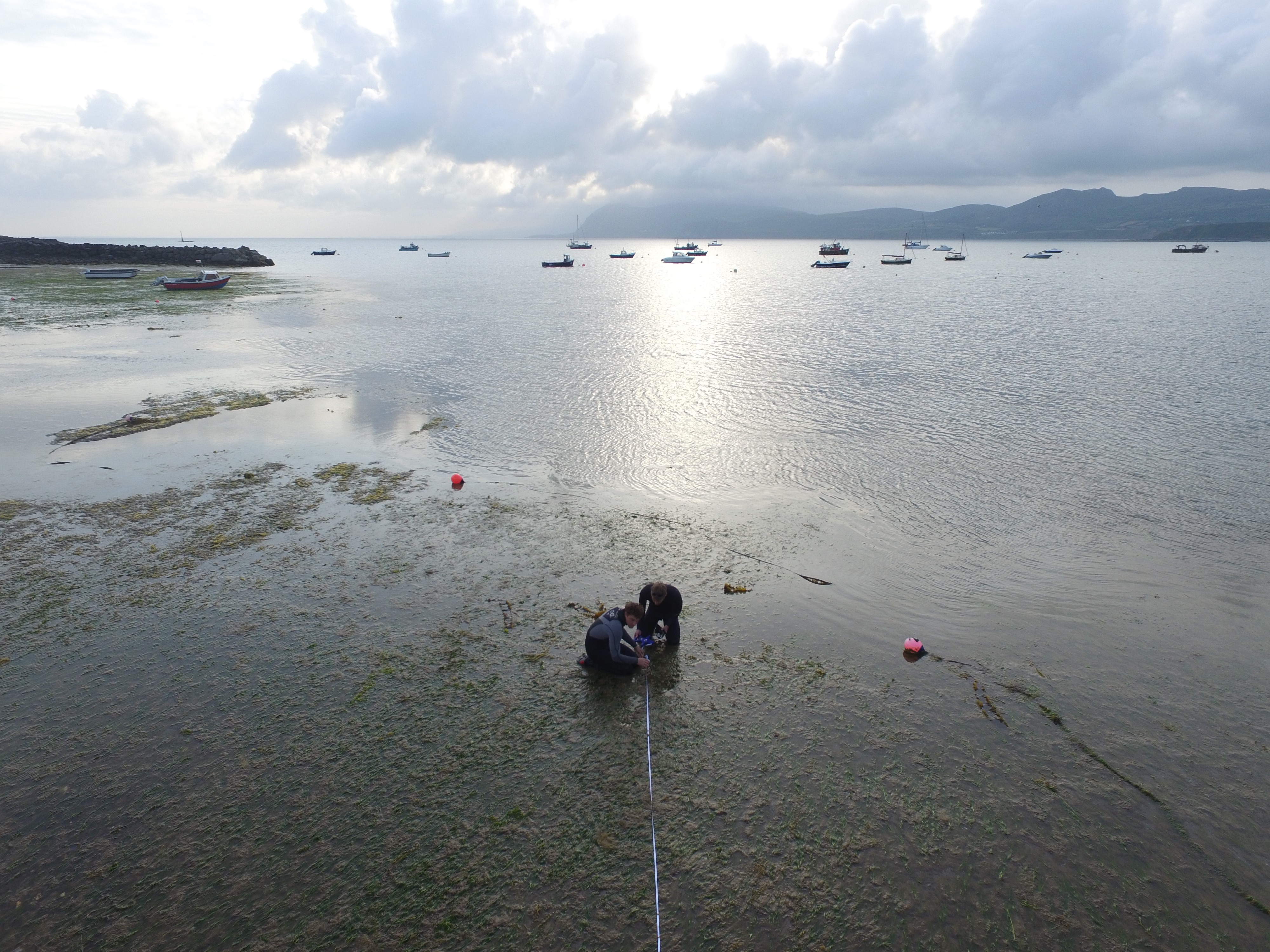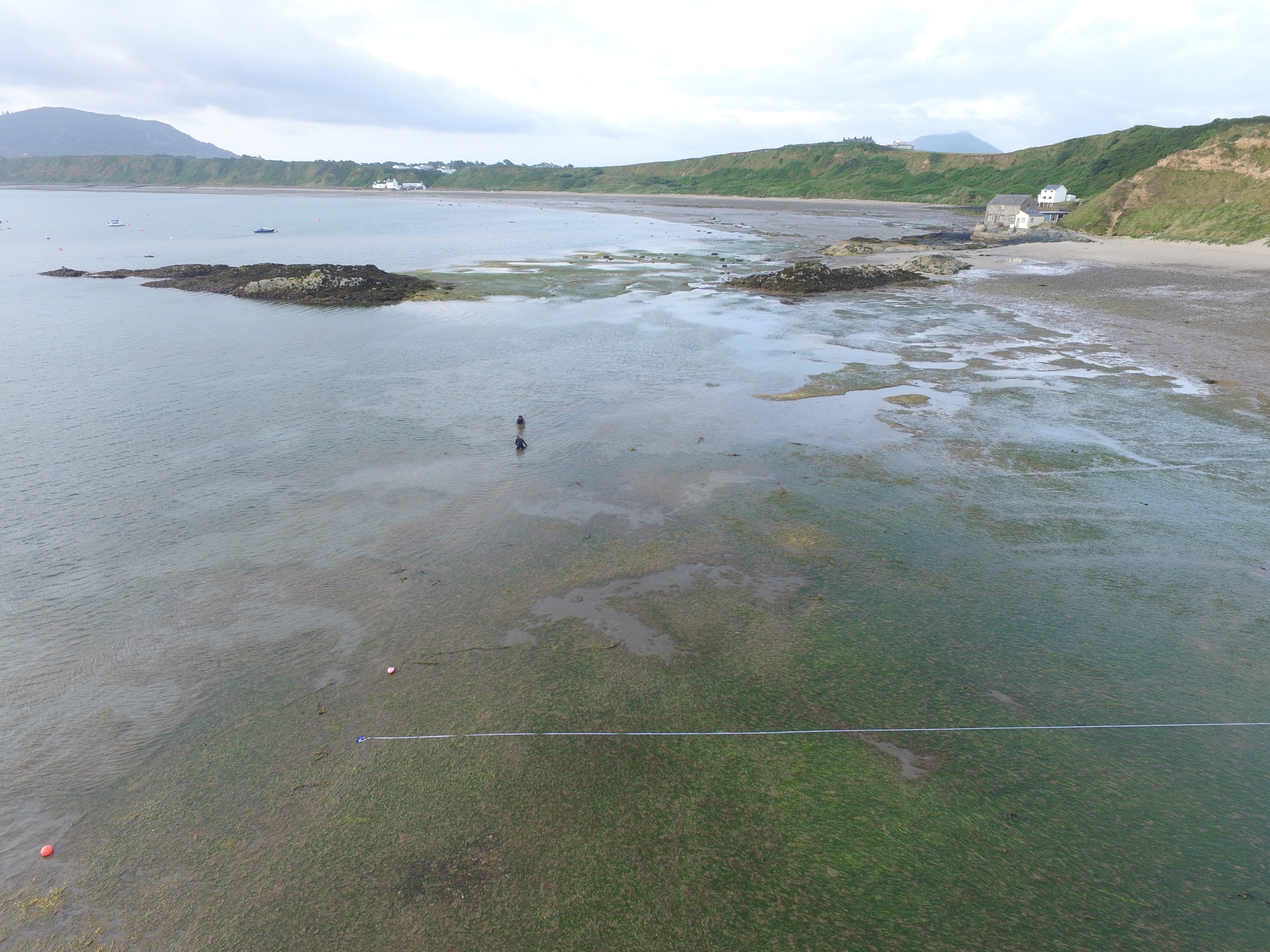INTERNATIONAL SCIENTISTS CONVERGE ON NORTH WALES TO GROW SEAGRASS CONSERVATION
“securing a future for seagrass”
NEWS RELEASE:
CONTACT:
Richard Lilley (07531 022756; LilleyRJ@cardiff.ac.uk)
Richard Unsworth (07795 311166; r.k.f.unsworth@swansea.ac.uk)
INTERNATIONAL SCIENTISTS CONVERGE ON NORTH WALES TO GROW SEAGRASS CONSERVATION
NANT GWRTHEYRN (4 October) — In mid-October, biologists from Australia, China, Russia, the USA, and Indonesia, among other nations, will spend a week alongside Welsh colleagues in the historic village of Nant Gwrtheyrn discussing the health of the world’s seagrass meadows. Comprised of underwater flowering plants, rather than the more common seaweeds, seagrass meadows are considered the prairies of the sea and play a critical role in powering oceans – supporting many fisheries, for instance. Yet, often neglected in policy-making, their continued global existence is in question due to widespread threats. The North Wales gathering is therefore a meeting of international importance, with scientists seeing it as one of few chances to better protect these little-known environments.
The stated aim of the 12th International Seagrass Biology Workshop is “securing a future for seagrass” in the face of the devastating effects humanity is having on world seagrass meadows. Dr Richard Unsworth, based at Swansea University and President of the World Seagrass Association, stated, “Seagrass meadows are nurseries for fish species such as the Atlantic Cod and have the potential to help mitigate the worst impacts of climate change. Securing their future makes sense for our economy, our food security, and our adaptation to climate change.”
While the meeting is addressing global issues facing seagrasses, it will also bring focus on Wales own seagrass meadows. Seagrass is extensive around the coasts of the Llŷn Peninsula but boat mooring damage and poor water quality are undermining their viability. Alison Palmer Hargrave of the Pen Llŷn a’r Sarnau Special Area of Conservation will be running a workshop at the meeting to bring together global knowledge on ways to reduce the impacts of boat moorings on seagrass. She explained, “we aim to pool the knowledge of participants in order to use international best practice to reduce this problem without damaging the important tourist, sailing and fishing industries present in the area”.
Previous International Seagrass Biology Workshops have been held in Japan, China, Thailand, Canada, Mexico, the Philippines, France, and Australia. The delegates travelling to North Wales are certainly excited about visiting the Llŷn Peninsula. “I'm looking forward to visiting Wales for the meeting. I'm curious to experience some of the culture and beauty of the country," enthused Amanda Cole of the University of North Carolina at Wilmington, USA. “I am excited to attend to connect with many experts also working on seagrass restoration and ecosystem services worldwide and to build international collaborations," added Professor Rohani Ambo Rappe of Hasanuddin University, Indonesia.
The scientists organising the meeting will be releasing a statement during the conference in an effort to put seagrass meadow conservation much higher on the political and public agenda. Dr Unsworth said, “Going forward, we’re hoping politicians, funders and communities will start to pay more attention to seagrass. Getting involved in initiatives such as Seagrass Spotter, an App that anyone can download and use to upload their own seagrass sightings, can help communities understand more about this resource whilst collecting important data on its distribution and health”.
The 12th International Seagrass Biology Workshop is running from 16-21 October. “Hosting this event in Wales, where many seagrass meadows are under threat, and historic loss has been extensive, is a great opportunity to exchange cutting edge knowledge from around the world as to the best means of conserving and restoring seagrass”, said Unsworth.
Anyone can get involved in Welsh seagrass meadow conservation by going to www.seagrassspotter.org.
###
You can find out more about the 12th International Seagrass Biology Workshop (ISBW12) at www.isbw12.org. If you would like a range of high quality photographs of seagrass environments to accompany any stories you publish on ISBW12, please do contact us. We will be happy to provide these free-of-charge.
Press release distributed by Pressat on behalf of Project Seagrass, on Wednesday 5 October, 2016. For more information subscribe and follow https://pressat.co.uk/
Seagrass Eelgrass Environment Climate Change Fisheries Oceans OceanOptimism Nature Science Wales Gwynedd Coast CitizenScience Conservation Environment & Nature
Published By

07531022756
rj@projectseagrass.org
https://www.projectseagrass.org
Benjamin Jones - ben@projectseagrass.org 07505 364692
Visit Newsroom
You just read:
INTERNATIONAL SCIENTISTS CONVERGE ON NORTH WALES TO GROW SEAGRASS CONSERVATION
News from this source:




